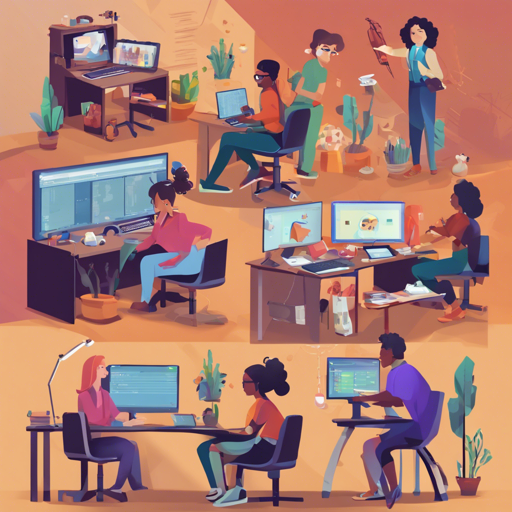If you’re eager to dive into the exciting world of game development, libGDX is a fantastic choice. This cross-platform framework makes it easy to create games for Windows, Linux, macOS, Android, web browsers, and iOS, all while using Java. Whether you’re a beginner or an experienced developer, this guide will walk you through getting started with libGDX and troubleshooting common issues you might encounter along the way.
Why Choose libGDX?
- Open Source: libGDX is released under the Apache 2.0 License, allowing unrestricted use for both commercial and non-commercial projects.
- Flexibility: Unlike many frameworks, libGDX offers freedom in design and coding style, giving you the opportunity to express your creativity.
- Rich Ecosystem: With a vibrant third-party ecosystem, you have access to numerous tools and libraries that ease development. Explore the awesome-libgdx repository for a curated list of valuable resources.
- Community Support: Join the official libGDX Discord for discussions and support from fellow developers.
Setting Up Your Project
Setting up a project with libGDX is a breeze, courtesy of Gradle. You can utilize the setup tool that automatically creates a project and downloads necessary components without the hassle of manual installation.
Creating Your First Game
To create your first game, you can follow the comprehensive guides available on the libGDX website:
Additionally, the libGDX javadocs provide a handy reference for developers.
Analogy: libGDX as Your Game Development Kitchen
Think of libGDX as your personal kitchen for game development. Just like a kitchen is equipped with various utensils and appliances, libGDX provides an extensive set of tools and features that allow you to whip up delicious games. You can choose your ingredients (the elements of design and coding) without being restricted by a fixed recipe. This not only keeps the cooking (development) process fun but also encourages creativity and experimentation, enabling you to craft unique gaming experiences. Whether you’re baking (2D games) or roasting (3D games), libGDX has the right tools for you!
Troubleshooting Common Issues
While working with libGDX, you may face some common challenges. Here are a few troubleshooting tips:
- Project Setup Errors: Ensure that you have Gradle installed and properly configured. Double-check the setup process to make sure all components were downloaded successfully.
- Runtime Errors: Review console logs for error messages. Often, these provide clues to what went wrong. If you encounter perplexing issues, searching online forums or the Issue Tracker can be beneficial.
- Performance Issues: Optimize your graphics and assets. libGDX is efficient, but poorly optimized assets can still cause performance hits.
- Accessing Documentation: Always refer to the official libGDX wiki for in-depth guides and documentation.
For more insights, updates, or to collaborate on AI development projects, stay connected with fxis.ai.
Join the Community
libGDX thrives on community involvement, with continuous contributions that improve the framework. If you want to make an impact, check out the CONTRIBUTING.md file for ways to contribute. You can also financially support the project through their Patreon.
Conclusion
At fxis.ai, we believe that such advancements are crucial for the future of AI, as they enable more comprehensive and effective solutions. Our team is continually exploring new methodologies to push the envelope in artificial intelligence, ensuring that our clients benefit from the latest technological innovations.
Start Creating with libGDX!
Now that you’re equipped with the knowledge to get started, it’s time to unleash your creativity and develop exciting games with libGDX!

